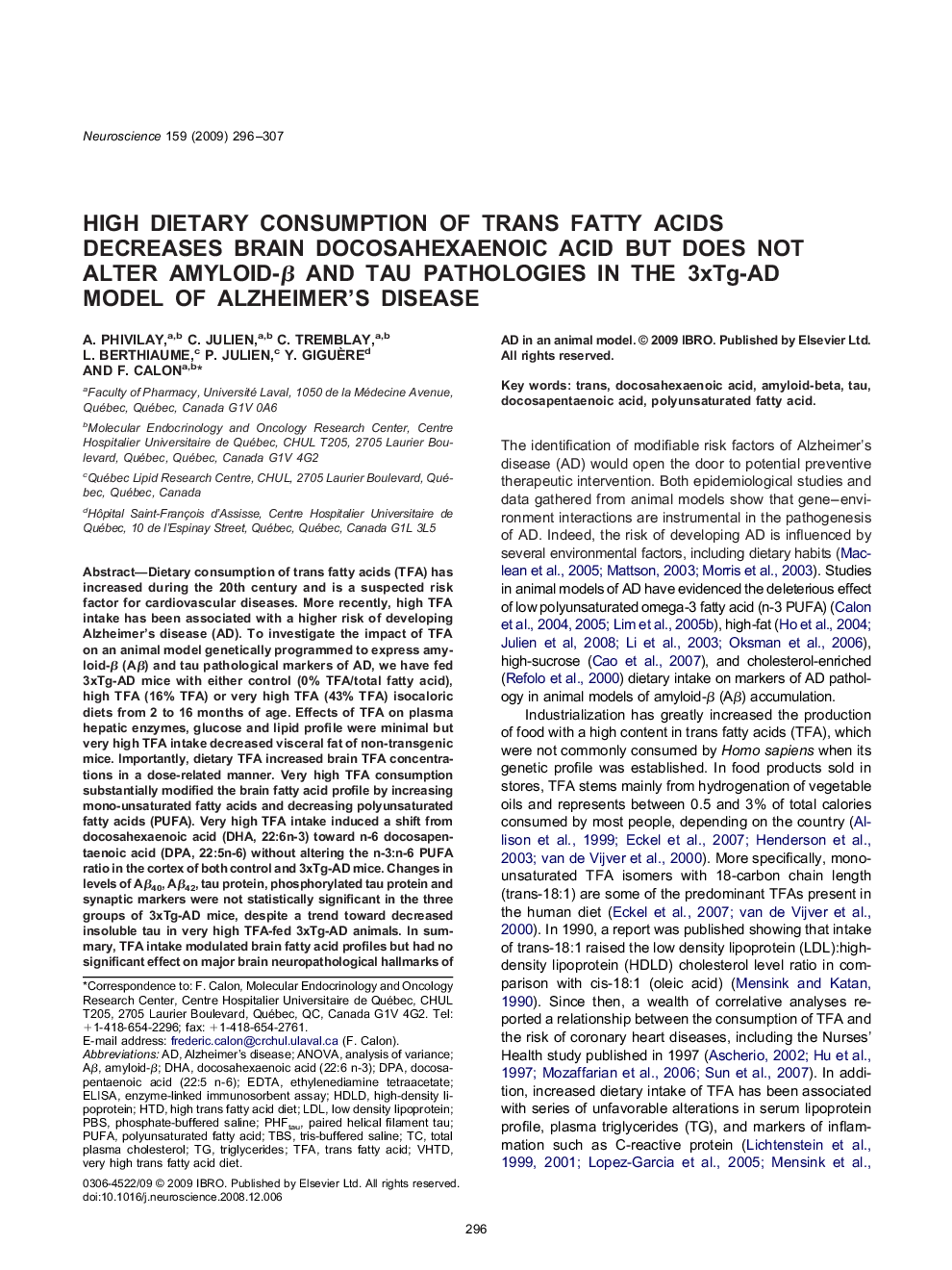| Article ID | Journal | Published Year | Pages | File Type |
|---|---|---|---|---|
| 6278411 | Neuroscience | 2009 | 12 Pages |
Abstract
Dietary consumption of trans fatty acids (TFA) has increased during the 20th century and is a suspected risk factor for cardiovascular diseases. More recently, high TFA intake has been associated with a higher risk of developing Alzheimer's disease (AD). To investigate the impact of TFA on an animal model genetically programmed to express amyloid-β (Aβ) and tau pathological markers of AD, we have fed 3xTg-AD mice with either control (0% TFA/total fatty acid), high TFA (16% TFA) or very high TFA (43% TFA) isocaloric diets from 2 to 16 months of age. Effects of TFA on plasma hepatic enzymes, glucose and lipid profile were minimal but very high TFA intake decreased visceral fat of non-transgenic mice. Importantly, dietary TFA increased brain TFA concentrations in a dose-related manner. Very high TFA consumption substantially modified the brain fatty acid profile by increasing mono-unsaturated fatty acids and decreasing polyunsaturated fatty acids (PUFA). Very high TFA intake induced a shift from docosahexaenoic acid (DHA, 22:6n-3) toward n-6 docosapentaenoic acid (DPA, 22:5n-6) without altering the n-3:n-6 PUFA ratio in the cortex of both control and 3xTg-AD mice. Changes in levels of Aβ40, Aβ42, tau protein, phosphorylated tau protein and synaptic markers were not statistically significant in the three groups of 3xTg-AD mice, despite a trend toward decreased insoluble tau in very high TFA-fed 3xTg-AD animals. In summary, TFA intake modulated brain fatty acid profiles but had no significant effect on major brain neuropathological hallmarks of AD in an animal model.
Keywords
TBSHTDDPAPBSAβTFAhigh-density lipoproteinamyloid-βamyloid-betaEDTAethylenediamine tetraacetatedocosapentaenoic aciddocosahexaenoic acidTrans fatty acidPolyunsaturated fatty acidPUFAAlzheimer's diseaseanalysis of varianceANOVAtransTris-buffered salineTriglyceridesEnzyme-linked immunosorbent assayELISATauDHAlow density lipoproteinLDLPhosphate-buffered salinetotal plasma cholesterol
Related Topics
Life Sciences
Neuroscience
Neuroscience (General)
Authors
A. Phivilay, C. Julien, C. Tremblay, L. Berthiaume, P. Julien, Y. Giguère, F. Calon,
